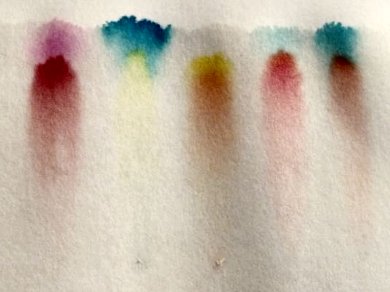Archer John Porter Martin was born in London, UK, on March 1, 1910. He studied chemistry at Cambridge University, UK, specializing in biochemistry. He graduated in 1932 and took up a post at the Dunn Nutritional Laboratories, UK. In 1938, Martin moved to the Wool Industries Research Association, Leeds, UK. From 1946–1948, he headed the Biochemistry Division of the Research Department of Boots Pure Drug Company, Nottingham, UK.
He joined the publically funded governmental agency the Medical Research Council (MRC) in 1948, based at the Lister Institute of Preventive Medicine, London, UK. In 1952, he was promoted to Head of the Division of Physical Chemistry at the MRC’s National Institute for Medical Research, London, UK. From 1959 until his retirement in 1970 he worked as a Director of Abbotsbury Laboratories, Elstree, Hertfordshire, UK.
After his retirement, Martin remained an active researcher, dividing his time between the University of Sussex, UK, and the University of Houston, USA. In the 1980s, Martin developed Alzheimer’s disease and volunteered to take part in one of the earliest trials for a treatment for the disease. He died on July 28, 2002.
Martin and Dr. Richard Synge were awarded the Nobel Prize in 1952 “for their invention of partition chromatography”. Martin met Synge at Dunn Nutritional Laboratories where they began to work on the problem of separating amino acid mixtures. This collaboration continued after Martin’s move to Leeds and led to the development of partition and gas-liquid chromatography.
During his career, Martin published only 70 papers.
Archer J. P. Martin is the answer to Guess the Chemist (7), which gives details about his scientific achievements.
- The Nobel Prize in Chemistry 1952
Nobelprize.org - Partition Chromatography,
A. J. P. Martin,
Annals of the New York Academy of Sciences 1948, 49, 265–278.
DOI: 10.1111/j.1749-6632.1948.tb35254.x
Also of interest:
- Short History of Chromatography
In his essay R. Ditz, Merck KGaA, asks if 100 years of chromatograohy are enough


